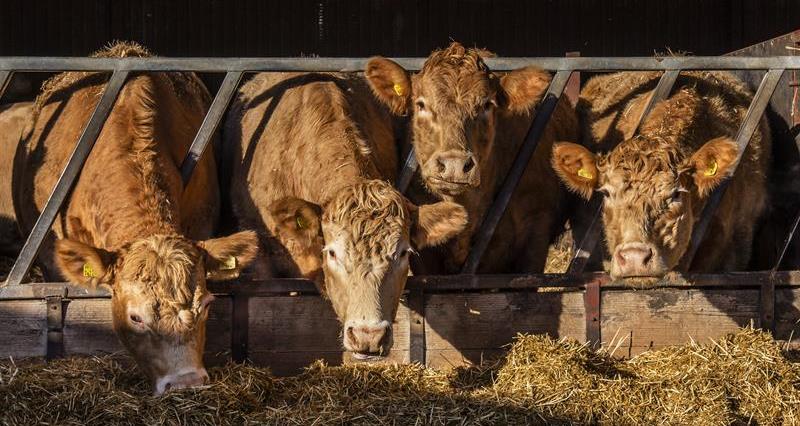The aim:
To reduce production of GHG emissions on‑farm through a feeding system for livestock which optimises product output, thereby reducing the carbon of footprint of each unit of produce.
The action:
Review and implement a feeding system (grown or bought) which combines maximum production efficiency with minimal GHG emission on farm.
The results:
For the business:
Maximum feed efficiency will produce the most product (pint of milk, kg of meat) for the least input, thereby benefitting the business bottom line.
For net zero:
Reducing GHG emissions through efficient feed systems will reduce a farm or product carbon footprint, thereby reducing its contribution to climate change.
How to measure success:
Completing a carbon calculator will allow you to measure the carbon footprint or your farm system or product and track improvements based on changes to the feed system.
Feed efficiency by livestock system
Feed efficiency can apply across all livestock systems, but it is particularly important for ruminants such as cattle, as the methane produced through enteric fermentation is almost 30 times more potent than carbon dioxide in terms of atmospheric warming.
Methane stays in the atmosphere for around 12 years, compared to hundreds of years for carbon dioxide, so whilst a small increase in methane emissions can significantly worse atmospheric warming, a decrease in methane emissions can contribute to atmospheric cooling in a much shorter time period.
It is also important to remember the importance of the source of livestock feed bought onto farm. Feed imported from unsustainable cropping systems, particularly those associated with deforestation, can result in an unsustainable carbon footprint for livestock even with efficient on‑farm feeding systems.
To avoid contributing to unsustainable livestock feed systems, speak to your feed advisor and supplier to ensure you are buying feed produced in a sustainable way.
Action |
Cost |
Time |
|
Dairy Combine available forage with the best balance of home-grown or purchased concentrates AHDB’s guide to ‘Managing your feeding’ for dairy cattle offers comprehensive guidance for maximising cost‑effective milk production. |
£-££/ |
|
|
Beef Options for beef feeding systems very widely depending on available resources and cattle type, and there is no clear‑cut answer to whether grass‑fed or grain‑fed beef has less impact on climate change. Developing an efficient feed system for your beef cattle should be tailored to your farm situation and breed. See AHDB’s guide to ‘Feeding growing and finishing cattle for Better Returns’ |
£-££/ |

